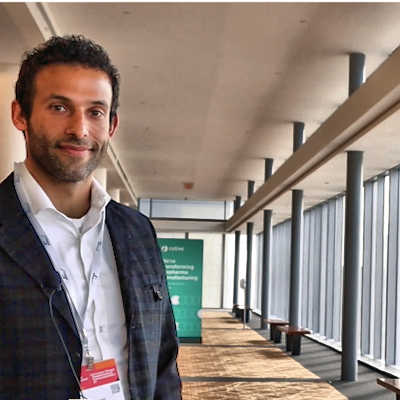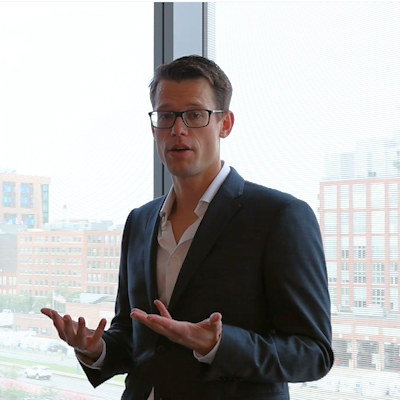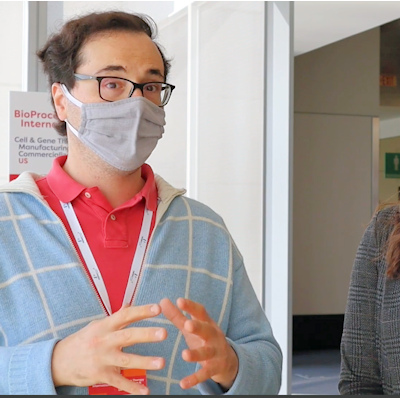October 5, 2021 -- An essential part of bringing new therapeutics to the clinic is process development, especially in new modalities such as adeno-associated viruses (AAV). Andrew Tustian, EngD, director of viral process development at Regeneron Pharmaceuticals, spoke with ScienceBoard.net at the recent Biotech Week Boston conference about how process development for AAV can be accelerated by modifying strategies from older modalities, like monoclonal antibodies.
Platforms, which are gaining popularity in drug development efforts, can be used to produce several different therapeutic candidates using the same base technology. However, Tustian explained that careful validation of each individual molecule or drug must be performed.
In April of 2020, Regeneron started a dedicated process development group that is specifically focused on viral vectors. Regeneron is focused on creating technologies that can enable accelerated development, Tustian explained. The company is also interested in exploring how scientists can accelerate process development for new modalities, especially in pandemic (emergency) scenarios.
The pandemic was the topic of a panel discussion -- "Strategies to Accelerate and Optimize Process Development, Production, and Time to Clinic for Novel Modalities" -- during Biotech Week Boston. Panelists discussed a variety of impacts the pandemic had on gene therapy development, including raw material shortages and supply chain challenges relating to the development of new modalities (i.e., RNA, or protein-based therapeutics).
To accelerate process development, Tustian explained, scientists should determine the specific end goals (critical quality attributes, or CQAs) of each candidate drug as early as possible in the development process. Cumulatively, characterization is a critical tool that can be leveraged to guide the development of therapeutics, he said.
Moreover, analytical tools are required to ensure that teams produce candidates with the aforementioned CQAs. Without analytics, Tustian said, development is blind. Tustian emphasized that it is crucial to work closely with teams developing the modality technology so that when it is time to move the candidate forward in the life cycle, product development can proceed efficiently.
When it comes to AAV process development, Tustian noted that there are several unique challenges. These hurdles include the large size of AAV, which is on the order of megadaltons rather than kilodaltons that are seen for small molecules or protein therapeutics. Also, viruses contain both protein and DNA; the characterization techniques for DNA are not as well established for AAV as they are for other modalities. There needs to be a concerted effort to bring in analytics for this complicated modality, Tustian said. Additionally, transient transfection, which is currently the most common method for producing cell lines, results in cell-to-cell variation. To this end, producer cell lines that do not require viruses may help make more reproducible AAVs.
Tustian is bringing his 12 years of experience he has gained from working with monoclonal antibodies to the viral process development field. He noted that a basic process development mindset, familiarity working with similar tools (chromatography, depth filtration, and cell culture), and knowledge of experimental statistical design can all be leveraged to build strategies for viral process development.
Do you have a unique perspective on your research related to bioprocessing? Contact the editor today to learn more.
Copyright © 2021 scienceboard.net









